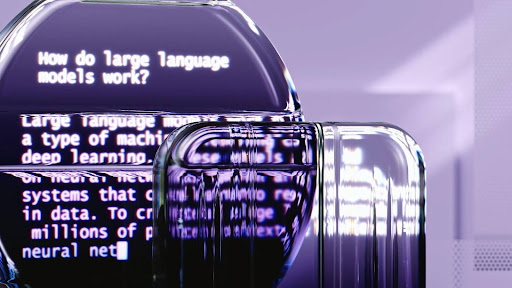
AI is rapidly changing how property management teams are organized and how they operate. What used to require multiple phone calls, manual follow-ups, or late-night responses can now happen instantly, consistently, and at scale—with minimal human effort.
For property managers, the value in AI is in its ability to provide human-like automation. What do we mean by that? Pre-AI, the best time saver we had was automations like autoresponders and templated flows—but these automations are rigid, lack any personalization and context, and to put it bluntly, are “dumb.”
With AI, it is what we call “generative”, meaning that it is not returning the exact same answer to every question. It is understanding intent and then crafting a response based on what it knows and the context it’s provided. Responding with “Hi Rob, I see you’re looking to move in ASAP…” is far better than responding with “Thank you for your email. We aim to respond in 24 hours…”
But beyond generative AI, we’ve quickly progressed to agentic AI solutions. Agentic AI is built off of the same large language models (LLMs) that power generative AI like ChatGPT and Claude. They’re then empowered with even more functionality—custom context, logic, the ability to make “tool calls” (i.e. take an action), or talk to other agents. This allows us to create even more powerful applications that feel human, have custom reasoning behind them, and can even take actions on our behalf.
AI done right can automate work in a way that feels more human, responsive, and contextual to your customers. When put in place, these systems reduce repetitive work, improve response times, and help you do more with the same (or fewer) resources. Whether you manage 50 doors or 5,000, the opportunity is to eliminate repetitive work so your team can focus on higher-value tasks and harder problem solving.
AI has incredible applications for property management. The industry has highly repetitive, process-oriented work: Tenants ask the same questions. Vendors need the same info. Renewals follow the same process. AI systems are built to recognize these patterns and respond accordingly—faster and more reliably than a human ever could.
Where traditional automation requires strict rules, AI offers flexibility. It can understand natural language (in calls, emails, and texts), make context-aware decisions, and improve over time. That means better service, less overhead, and far fewer dropped balls.
Property management is not just one thing—it’s a series of departments, capabilities, and operating processes spanning leasing, accounting, maintenance, and customer service. Each of these areas has huge opportunities for AI to introduce major gains.
In leasing, AI is transforming lead response times. Instead of missing inquiries after hours, AI can qualify prospects, answer questions, and schedule tours automatically—within seconds of the inquiry. This means higher conversion rates, fewer lost opportunities, and a record of every request.
Maintenance is another high-impact area. AI can take in service requests by phone or text, determine urgency, troubleshoot minor issues (like resetting a breaker), and assign requests—all without a human getting involved. When a human needs to be looped in, like for explaining an approval to an owner, or for an emergency, the right AI will also know when to bring a “human into the loop.”
And on the financial side, AI is simplifying accounting and collections. It can automatically category expenses, chase down late payments, and surface anomalies—giving you cleaner books and better visibility without hours of spreadsheet work.
But perhaps the biggest shift is in customer service. AI agents can now answer phones, respond to emails, and route issues to the right person or workflow. For many operators, AI property management solutions like Super are cutting down support volume by 34% or more—while improving responsiveness.
AI doesn’t replace your team. Think of it as a multiplier: It’s not about removing people from the loop, but about freeing them from the repetitive, low-leverage tasks that bog down operations. Like your best administrative employee, AI systems are trained follow your business rules and policies—more quickly and with more consistency than humans can.
It’s also not a one-size-fits-all solution. Great AI is domain-specific: for example, is this AI specialized in customer service or in flagging payment risks? The smartest approach is to identify the pain points in your current workflow, then layer in AI where it can do the most good. (Super can help you identify your communication workflow pain points with a free AI analysis of your phone logs.)
If you’re new to AI, the best place to begin is with a single bottleneck. Identify a high repetition, high pain issue. For example: Are you missing calls? Struggling with after-hours maintenance? Drowning in emails? Start there.
AI-native tools are designed to plug into your existing workflows—so you don’t need to rip anything out to see results. Best practice is to begin with a focused goal, measure impact, and expand from there.
AI is already reshaping the playbook for property managers. The teams using it aren’t just moving faster—they’re working smarter, delivering better service, and building more scalable operations.
The future of property management isn’t human or AI—it’s both, working together. The AI handles the repetition. Your team handles the relationships.
And that’s the real opportunity: less busywork, more bandwidth, better business.
Ready to learn more about what an AI receptionist can do for you? Book a demo with Super today to learn about our AI solutions for managing calls, emails, and messages.